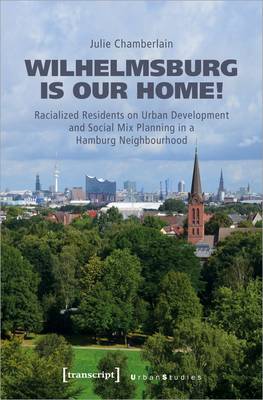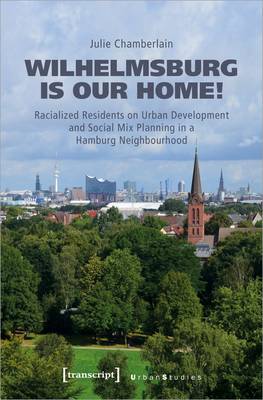
- Afhalen na 1 uur in een winkel met voorraad
- Gratis thuislevering in België vanaf € 30
- Ruim aanbod met 7 miljoen producten
- Afhalen na 1 uur in een winkel met voorraad
- Gratis thuislevering in België vanaf € 30
- Ruim aanbod met 7 miljoen producten
Wilhelmsburg Is Our Home!
Racialized Residents on Urban Development and Social Mix Planning in a Hamburg Neighbourhood
Julie Chamberlain
€ 118,95
+ 237 punten
Omschrijving
In a neighbourhood facing massive redevelopment, racialized residents speak about stigma, social mixing, and what the island community means to them. Based on rich interviews, photographs, and archival research, Julie Chamberlain rejects the usual silence in German urban studies around racialization and examines how constructing some groups as »not belonging« has shaped Hamburg-Wilhelmsburg's past and present. For racialized long-time residents, it is Heimat, a space of belonging in the context of exclusion. As social mix policy threatens that belonging, residents explore their hopes and their fears for the future of an urban space where gentrification looms.
Specificaties
Betrokkenen
- Auteur(s):
- Uitgeverij:
Inhoud
- Aantal bladzijden:
- 244
- Taal:
- Engels
- Reeks:
Eigenschappen
- Productcode (EAN):
- 9783837663877
- Verschijningsdatum:
- 27/10/2022
- Uitvoering:
- Paperback
- Formaat:
- Trade paperback (VS)
- Afmetingen:
- 152 mm x 229 mm
- Gewicht:
- 331 g

Alleen bij Standaard Boekhandel
+ 237 punten op je klantenkaart van Standaard Boekhandel
Beoordelingen
We publiceren alleen reviews die voldoen aan de voorwaarden voor reviews. Bekijk onze voorwaarden voor reviews.










